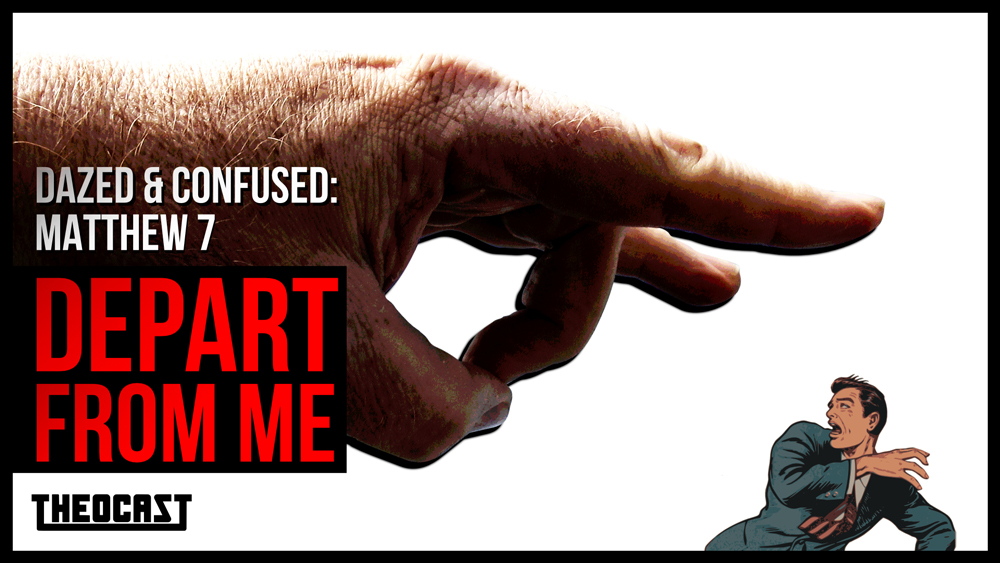My previous two articles have focused on Roman Catholic theology and its slow entry back into mainstream Christianity. Until the 1970’s, it was difficult to find any popular materials or teachers speaking on the subject of spiritual disciplines. Research uncovers that Richard Foster, Dallas Willard and Don Whitney are the three most influential writers/teachers to have given this movement sustained credibility.
This man centered approach to sanctification has been introduced back into Christianity and has now infiltrated the majority of books written on the subject. Because of these three men, practicing spiritual disciplines for spiritual growth in sanctification is now the norm and not the exception. What was once limited to the writings of a few puritan authors, and limited to the teachings of a few revivalist preachers, is now a mainstream theological concept in the Christian church? Ask any Christian if they have heard of the concept of spiritual disciplines and most likely they will give you a short list of required actions.
I have examined the writings of these three men in order to further demonstrate that the theology behind these disciplines is not based on sound biblical teaching but rather based on ancient Roman Catholic theology. I mentioned this quote from Foster in my first article, and I think it helps explain how these authors have been influenced. Foster writes,
When I first began writing in the field in the late 70s and early 80s the term “Spiritual Formation” was hardly known, except for highly specialized references in relation to the Catholic orders.[1]
Foster is clearly versed in the writings of these orders and makes references often in his books. In his book Celebration of Discipline, in his teachings on “Forms of Meditation,” Foster writes, “Seek to live the experience, remembering the encouragement of Ignatius of Loyola to apply all our senses to our task.”[2]
As detailed in my second article, Ignatius started the Jesuit movement, and was one of the prominent men who led the counter-reformation against Luther and Calvin. Ignatius openly denied the gospel of grace and directly opposed the reformers in his writings. Ignatius is not the only Roman Catholic influence in Foster’s theology. In the middle of the 20th century, Thomas Merton was a man famously known as a Trappist monk in Gethsemani, KY. He wrote more than 70 books the on subject of spirituality. One of Merton’s best loved books was his autobiography The Seven Storey Mountain (1948). Foster, in an attempt to encourage the Roman Catholic concept of meditation, points his readers to Merton’s writings,
Thomas Merton writes that the person “… who has meditated on the Passion of Christ but has not meditated on the extermination camps of Dachau and Auschwitz has not yet fully entered into the experience of Christianity in our time.”[3]
One last example of an influencer of Foster’s Roman Catholic theological leanings is a man by the name of Henri Nouwen. Nouwen was known for teaching that God is already within every human. He writes, “The God who dwells in our inner sanctuary is the same as the one who dwells in the inner sanctuary of each human being.”[4] Foster encourages his readers to partake in Nouwen’s theology of meditation in the opening quote of his book on The Discipline of Solitude. Henri Nouwen has noted that
…without solitude it is virtually impossible to lead a spiritual life.” Why is this so? Because, in solitude, we are freed from our bondage to people and our inner compulsions, and we are freed to love God and know compassion for others.[5]
Foster positively introduced three of the most popular catholic mystic writers (two of them from the 20th century) as experts in spiritual growth. Foster never warns us about their misunderstanding of the gospel. He doesn’t provide a foot note about their Roman Catholic background. He simply presents them as authorities on the matter. This is important because Foster’s book is the foundation for the modern-day spiritual disciplines movement. Foster’s impact is greater than most Christians realize.
Most people would not consider Foster’s teaching on spiritual disciplines to be dangerous or damaging because they are not aware he was a quaker mystic who embraced Catholic theology. Conservative evangelicals have noticed Foster’s influence on Christian thinking and unfortunately have embraced it. In the forward of Don Whitney’s book Spiritual Disciplines for the Christian Life, J.I Packer wrote,
Ever since Richard Foster rang the bell with his Celebration of Discipline (1978), discussing the various spiritual disciplines has become a staple element of conservative Christian in-talk in North America. This is a happy thing.
Dallas Willard is the second author/teacher who has had a large influence in popularizing the spiritual disciplines movement, and he was also a strong influence in both Foster and Whitney’s theology. Willard writes,
I want to explain, with some precision and detailed fullness, how activities such as solitude, silence, fasting, prayer, service, celebration— disciplines for life in the spiritual kingdom of God and activities in which Jesus deeply immersed himself— are essential to the deliverance of human beings from the concrete power of sin and how they can make the experience of the easy yoke a reality in life. By focusing on the whole of Christ’s life and the lives of many who have best succeeded in following him, I will outline a psychologically and theologically sound, testable way to meet grace and fully conform to him.[6]
Willard’s list of activities (solitude, silence and fasting, among others) are never described in scripture as being able to relieve the power of sin in one’s life. Willard calls his readers to focus on imitating Christ’s life and those who have “best succeeded in following him” to help further sanctify themselves. Christ, however, calls us to faith in Him and His works. Willard has placed the reader’s faith in their faithfulness (their ability to complete these actions), which ultimately points away from faith in Christ’s ability to accomplish righteousness in us. Willard actually argues for this very point on his website,
Sometimes we think of spiritual formation as formation by the Holy Spirit. Once again. That’s essential. . . . But now I have to say something that may be challenging for you to think about: Spiritual formation is not all by the Holy Spirit. . . . We have to recognize that spiritual formation in us is something that is also done to us by those around us, by ourselves, and by activities which we voluntarily undertake . . .There has to be method.[7]
Don Whitney is the last of the three authors I am going to review, and of the three, he is the most widely accepted among conservative and some reformed Christians. The influence of both Foster’s and Willard’s writings are very evident in Whitney’s theology. To be fair, Whitney does not go as far as some do in promoting Roman Catholic practices or writings, but he still embraces the belief that practicing certain actions will produce spiritual growth. Early in his book, Spiritual Disciplines for the Christian Life Whitney states, “I will maintain that the only road to Christian maturity and Godliness passes through the practice of the Spiritual Disciplines.”[8]
Because Whitney has partially embraced this Roman Catholic view of spiritual growth, it confuses important biblical doctrines such as assurance, which the reformers specifically left the Roman Catholic Church over. Whitney, in an attempt to urge Christians towards spiritual disciplines, writes,
And so, the urgent question every Christian should ask is, “How then shall I pursue holiness, the holiness without which I will not see the Lord? How can I become more like Jesus Christ?” We find a clear answer in 1 Timothy 4: 7: “Discipline yourself for the purpose of godliness”(NASB). In other words, if your purpose is godliness — and godliness is your purpose if you are indwelled by the Holy Spirit, for He makes godliness your purpose — then how do you pursue that purpose? According to this verse, you “discipline yourself for the purpose of godliness.[9]
I believe that Whitney would reject any notion that our good works are the basis of our salvation. However, Whitney’s logic concludes that unless I am demonstrating godliness I will not see Christ; therefore I must be diligent to practice spiritual disciplines so that I can see Christ. The “righteousness required” mentioned in Hebrews 12:14 is not a righteousness of my own, but that of Christ’s. It is imputed righteousness. If Whitney is correct, how much righteousness is enough to be acceptable?
Lastly, I want to draw attention to a new book by David Mathis, Executive Editor for Desiring God Ministries, entitled Habits of Grace: Enjoying Jesus Through Spiritual Disciplines. This is the most recent book to gain traction in promoting spiritual disciplines. This book has received much praise and has some big contributors behind it, such as John Piper, Don Whitney, Tim Challies, Jerry Bridges, and even D.A. Carson.
I believe some of these men have endorsed the book because of the reformed view it has appeared to have taken. Mathis uses the language “means of grace” as his baseline reasoning for the spiritual disciplines. While this is a very reformed concept for how we grow in Christ, the problem lies in that Mathis is only creating a bridge between Don Whitney’s book and a reformed view of the means of grace. In the preface he openly admits to the influence of Whitney’s book on his own theology, and it is noticeable in how many times Whitney’s book is referenced. Mathis, in stating his purpose for the book, writes,
In particular, I am eager to help Christians young and old simplify their approach to their various personal habits of grace, or spiritual disciplines, by highlighting the three key principles of ongoing grace: hearing God’s voice (his word), having his ear (prayer), and belonging to his body (fellowship).[10]
Mathis isn’t offering any new ideas even though it sounds as though he will be taking a reformed approached to this subject. He is simply changing the terms and then giving the same instructions as Foster, Willard and Whitney. He openly admits this very concern,
Whatever the term, the key is that God has revealed certain channels through which he regularly pours out his favor. And we’re foolish not to take his word on them and build habits of spiritual life around them.[11]
Once again, the dilemma presented by Mathis is that I am required to perform certain actions to receive favor from my Father. The call is not to place our faith in Christ and trust that His righteousness, imputed to us, is all we need to find favor with our Father.
Jon Moffitt
[1] //web.archive.org/web/20100601012402///www.theooze.com/articles/article.cfm?id=744
[2] Foster, Richard. Celebration of Discipline: The Path to Spiritual Growth, 29.
[3] Ibid, 32.
[4] Nouwen, Henri. Here and Now, p. 22.
[5] Celebration of Discipline: The Path to Spiritual Growth, chapter 7.
[6] Willard, Dallas. The Spirit of the Disciplines, p.10.
[7] //www.dwillard.org/articles/artview.asp?artID=58
[8] Whitney, Don. Spiritual Disciplines for the Christian Life, p. 16-17.
[9] Ibid, p. 4.
[10] Mathis, Davis. Habits of Grace, p. 16.
[11] Ibid, p. 27.






